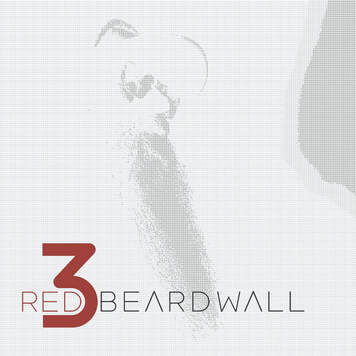
Written by: The Administrator
The Red Beard Wall experience has been--and always will be, I suspect--a deliberately jarring one, even for those who know to expect the immeasurable enthusiasm and bombast on display. This project's modus operandi is one of gloriously violent dynamics: every track is a sonic gladiatorial extravaganza. Unhinged screams, post-hardcore cleans, bouncy percussion, 90's-style alternative aggression, and thicc-ass sludgy stoner riffs meet head-on in the arena. However, rather than unleashing their pugilistic wrath upon each other, they somehow harness their unharness-able collective power, subsequently raining blood and thunder on the audience. Frankly, it's quite the sight to behold. On the appropriately entitled 3, I am happy to report that human wrecking ball (and nicest man alive) Aaron Wall delivers his best performance yet--which says something, if you happen to recall my praise of 2019's The Fight Needs Us All. Much like his prior work, this album succeeds because it capitalizes so well on Aaron's bright and earnest personality.
2 Comments
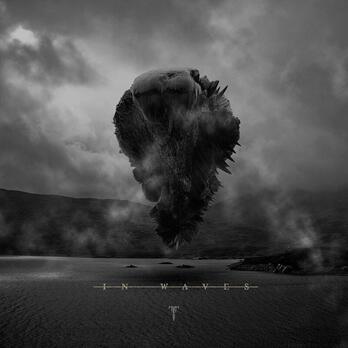 Written by: Blackie Skulless Looking back to my days of high school, it’s fun to reminisce on albums that came out around the time that had some sort of hype, but lost it over the years. Sometimes, that’s due to not aging well; other times, it just gets lost in the depths of everything else going on. Trivium’s album In Waves comes to mind, considering that it’s one that seldom gets talked about (positive or negative) compared to the likes of Shogun or Ascendancy these days. This disc turns ten later on this year, and I still to this day view it as a masterpiece, which may be a bit of a hot take. For starters, I want to say that this is metalcore done exactly right. By this point, most metalcore bands abandoned the genre’s roots, and traded in thrashy riffs and hardcore aesthetic for endless chugs, overly produced vocals, and extremely generic songwriting. Trivium never got caught up in that undertow. In Waves is absolutely packed with furious thrash riffs that cast sharp hooks, and evenly work in the hardcore chugs without being overwhelming. If that isn’t enough, the actual songs have more advanced writing than ever. The Crusade may be a more direct thrash release, but this is where Matt Heafy and co. blended it wonderfully with hardcore to pump out a spectacular album. 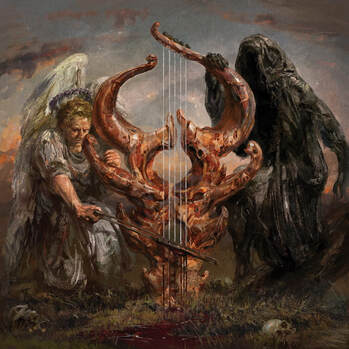 Written by: Continuous Thunder Over the course of 20 years and 10 studio albums, Demon Hunter have established a tradition of including at least one lighter or slower song on each release. Now, you might imagine that these wouldn’t be the most popular songs in their catalog. Nobody listens to an alternative metal album excited to hear the ballads, right? While that is the case with a handful of these tracks, some of them became fan favorites and even managed to get on some Christian music charts. Partially because of the lack of harsh vocals, but also because Demon Hunter has a knack for writing slow songs that don’t suck, and likely because they choose to go for more melancholic themes rather than sappy ones. For their 11th release, the band has re-recorded many of these slower songs from their catalog with acoustic and orchestral arrangements, further emphasizing their gloomy tones. 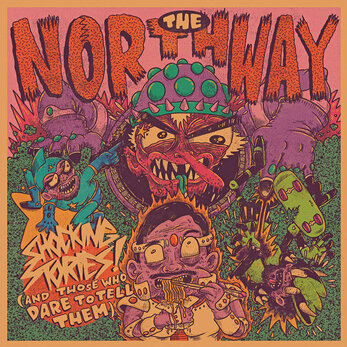
Written by: The Administrator
And now for something completely different! Today's album (and band) in question covers a unique blend of genres that don't get a whole lot of coverage 'round these parts--or any parts, for that matter, that we slumbering scribes tend to frequent. With that disclaimer in mind: let's dive in. On their latest effort, Shocking Stories! (And Those Who Dare to Tell Them,) The Northway play a difficult-to-place conglomerate of pop punk, prog, math rock, and perhaps some alt metal, with a few other assorted elements weaving their respective ways into the chaotic fold. There's an alternative rock/metal angst on display, as well as a ska-esque sense of hype. Most notable, however, is the prominent role of the utterly unexpected. Take, for example, early album highlight "Trampolinehead," which blends a straightforward punk riff with a delightful Gentle Giant-by-way-of-Primus level of prog weirdness. There's a jazz lounge solo, a de la Rocha rap-rock moment, and a whole lotta assorted oddities besides. And if you think this is wacky, the excellent "City Trial" takes similarly disparate elements and cranks 'em up to 11. This thing is like the unholy alt-metal lovechild of Haken 's proggy tendencies and, I dunno, the early-aughts swagger of Priestess. And even that only covers a fraction of this track's identity. The entire album exists in a similarly fluid state, and, as a result, it's incredibly fun to experience. 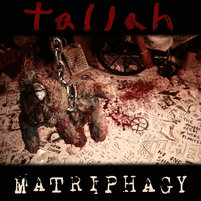
Written by: The Voiceless Apparition
So here we are: 2020. We've seen pandemics, political unrest, and so much more. But we've also seen the return of nu-metal. Typically this isn't something I would be interested in, because there are many aspects of the genre I don't like. There's a lot of macho-man jock mentalities in the scene, and quite frankly, most of the 2nd-wave bands were so watered-down and generic without any heaviness or balls. But with Tallah, it's a different story. With their debut album Matriphagy, Tallah bring back nu-metal in a big way, with a modern take and a storyteller-based approach to the lyrics. To summarize without giving away the story, the concept of this album is about a man named Kungan who is his mother's caretaker after she was paralyzed when he was a child. His mother is unappreciative and manipulative, forcing him to basically be enslaved in his room, tending to her every need. Long story short, he slowly goes insane, and that's where I'll leave it so I don't spoil it. Lets enter the psychotic world of Matriphagy.  Written by: Izzy Sometimes you gotta be the voice of dissent, the blade going against the grain, the weed growing from a crack in the concrete, the harbinger of anger from thousands of metal fans across the world. Following popular opinion has never done me any good, so I’m going to bear the burden of being THAT guy and say what so many probably don’t want to: I do not like the new Deftones album.** (**In comparison with their previous work.) While I can’t call Ohms “trite” or “trash,” since it’s certainly a new-ish direction in the bands’ sound and is far from the worst thing I’ve ever heard, I do have many issues with it and luckily there’s plenty of other insulting things I can call it to get fanboys ready to piss on my grave! (Speaking of which, hi there Loveloth, I imagine you’re already sharpening your pitchfork, but I’d recommend at least reading the rest of the review before you skewer and burn me at the stake for my blasphemy.) 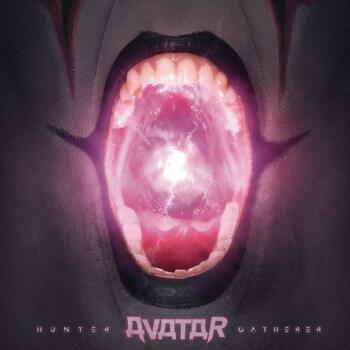 Written by: Beaston Lane Dear readers, I’ve a feeling we’re not in Avatar Country anymore. As the world grapples with the caustic effects of the COVID-19 pandemic and our favorite artists are screwed over by penny-pinching corporations, an island run by fun-loving metal maniacs sure sounds like a great place to be--but that’s not where Avatar takes us on their highly anticipated 8th LP. Hunter Gatherer finds these bombastic Swedish metallers in that bleak headspace so many of us have to confront every morning as we contemplate the increasingly volatile future. Gone are the fables and legends of Avatar’s past, replaced with the nightmares of a planet in crisis. Robust and aggressive, Hunter Gatherer is the sound of one band’s cleansing discharge of years of pent-up anger and anxiety. 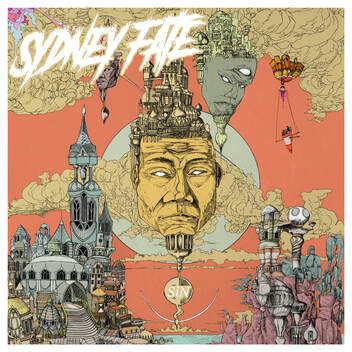 Written by: Alex, Bringer of Payne Cardiff was declared the second most musical city in the UK almost a decade ago, thereby formally recognising the city’s unwavering history of producing musical acts that have gone on to dominate almost every genre. Rightfully so, as countless alternative acts have cut their teeth in the basements and dungeons below Womanby Street’s greatly revered venues. Industry legends such as Bullet for My Valentine, Skindred, Budgie, Persian Risk, Icons of Filth, and Desecration have all been spawned from the South Wales scene, and now Sydney Fate are ‘Diff’s metal scene’s newest contenders. Armed with a healthy duality of cleans and screams, stellar production, and an arsenal of guitars, the sextet have recently released their debut album, Silicon Nitride, to the world. 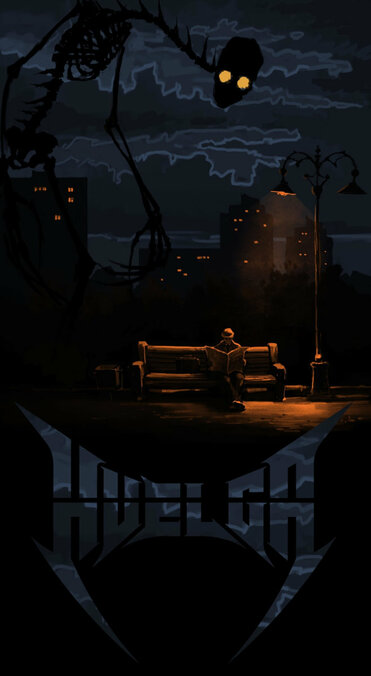 Here’s something I’m comfortable admitting: at first blush, Huelga’s self-titled debut EP made for an exceedingly frustrating experience. Inconsistent. Illusive. Nonsensical. Not, in other words, the terms one might enjoy having applied to their passion project of more than a decade. However, after continued exposure and a certain degree of reflection, it became apparent that Huelga is a remarkable effort with a patently unique perspective. Multi-instrumentalist Michael Fonseca--who brings a background in jazz and an apparent interest in the non-conformist and modernist compositions of Zappa and Ives--isn’t here to recycle wrought notions of genre expectation. Huelga, in other words, operates exclusively outside the bubble of comfortable expectation, and for that reason alone, it’s worth our collective whiles. Despite appearing to wear the heavy sonic trappings of groove, thrash and (ill-defined) mathcore, Fonseca's approach aligns the project with avant-garde jazz. Thus, from an instrumental perspective, there’s a mind-boggling amount to discuss--especially given Huelga’s 15 minute run-time. Making ample use of squealing leads, melodic dissonance, poly-rhythms, and aggressively fluid tempos, Huelga offers few moments for the listener to sink in and grasp what is actually happening. Riffs meld and adapt with startling frequency, disappearing into the fold one moment, only to reemerge in some vastly redefined form further down the road, shaped by the rolling boil of seemingly spontaneous invention. Even if this isn’t free-form composition in the true sense of the term, the semblance of improvisation is enough to evoke those noise and jazz connections. Intro track “The Very Marrow of Our Bones” is an effective crash course in Fonseca's methodology--in under 3 minutes, one careens through a deluge of colorful melody, downtuned groove, and an oddly harmonious percussive elements. At times "Marrow" feels djent-y in its distorted technical intensity, but churning thrash elements and pull-out-the-carpet percussion prevent anything approaching stagnation. “Chinga de Perro” and the 2-part “No Word for Blue” continue this pattern, although the latter--the album highlight, in my humble opinion--does feel slightly more consistent, due to its use of identifiable melodies across the first half. Huelga is not clever because its complicated. Rather, it is clever because it demonstrates a complex understanding of modern arrangement, and utilizes the tools it has avaliable to effectively illustrate a central contextual background. Inspired by the Chicano Movement and the obvious stress and violent intentions that arise from a border defined, in many way, by borderline xenophobia, Foncesa is decidedly mission-based. To quote his bio, Huelga “takes a stand against the anti-Latinx, anti-immigrant sentiment that pollutes ‘The Land of the Free’ today.” To this end, the arrangements herein do an inordinately good job at creating--and reflecting--a palpable sense of tension. This particular scribe is a firm believer that art is, inherently speaking, a product of its political environment. In the case of Huelga, this environment feels essential to both the musical impact and approach. How best to summarize a project that so willingly denies categorization? In short, the musical virtuosity on display is undeniable. That said, intriguing and ear-catching instrumentation does not (necessarily) a good song make, and the absence of traditional structure can make for a jarring listening experience if you’re approaching Huelga on a casual level. But yet, these moments of melodic dissonance, of tempo-shifting blindsides, and of seemingly blatant inconsistency are what define Huelga’s unique sonic assault. As such, Huelga highlights a truth that we often miss: there is undeniable beauty in the unexpected. Take, for example, the bright chime that claims a brief moment in the spotlight on “Chinga de Perro.” Seemingly uncalculated, it adds an unexpected flair to the full picture, a moment of interest in a sea of interesting moments. Like so many across this debut, this glimmer exudes gleeful revelry in its rejection of expectations. Lack of continuity gives the affair, for obvious reasons, a disconnected and ungrounded aura--a “floating world” feeling where technical aspects astound, but the (seeming) lack of foundation offers a challenge to the audience. In the context of a more prototypical work, this would undoubtedly come across as criticism. Not so here. Fonseca is seeking, it would seem, to disassemble our understanding of the ways in which heavy music can operate. After several encounters, I’ve come to realize that he succeeds incredibly. Huelga’s self-titled debut will be released April 5th, 2019. 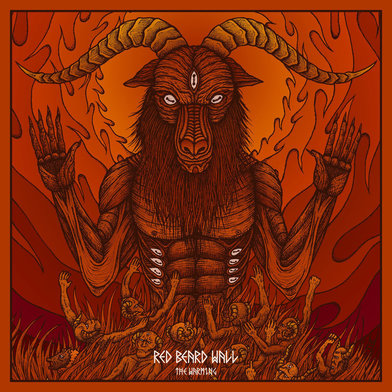 Lest the masses be confused: I am decidedly an album guy. A truly well-conceived arrangement of tracks, designed with the explicit purpose of flowing and interlocking with deliberate grace--for me, this is the holy grail of the music-listening experience. With that said, this month has been all about the singles, evidenced best by the number of goddamn times I’ve hit repeat on Red Beard Wall’s (certifiably) unstoppable latest. For those of you not in the know, RBW plays a wickedly cacophonous brand of sludge--a brutal slugfest between the hooky pseudo-melodic stylings of Torche or Helmet, and the bayou groove of NOLA’s finest. Here, the formula hasn’t changed all that much, thank the lord. Given past experiences I went in expecting a lot, and this track absolutely brings it in the execution department, due in large to the multifaceted vocal delivery. Raspy roars one moment, chant-along-the riff cleans the next. It’s a delicious recipe, to be sure, accented by crunchy, head-bopping riffage and some absolutely crushing work in the percussion department. This is sludge rock at its finest--thick, unique, and relentlessly repeatable. It’s a rabble-rouser, a neck-snapper. As a single, The Warming does its job...inordinately well. Red Beard Wall’s (excellent, I assure you) sophomore album, The Fight Needs Us All, releases Feb 22nd from Argonauta Records. Full review shall follow in good time. In the meantime, we Villagers, effectively woken from our slumber, highly recommend you find your way over to that preorder. Red Beard Wall can be found Bandcamp |
Welcome!
We provide thoughtful reviews of music that is heavy, gloomy...and loud enough to wake us from slumber. Written by a highfalutin peasantry!
|

 RSS Feed
RSS Feed